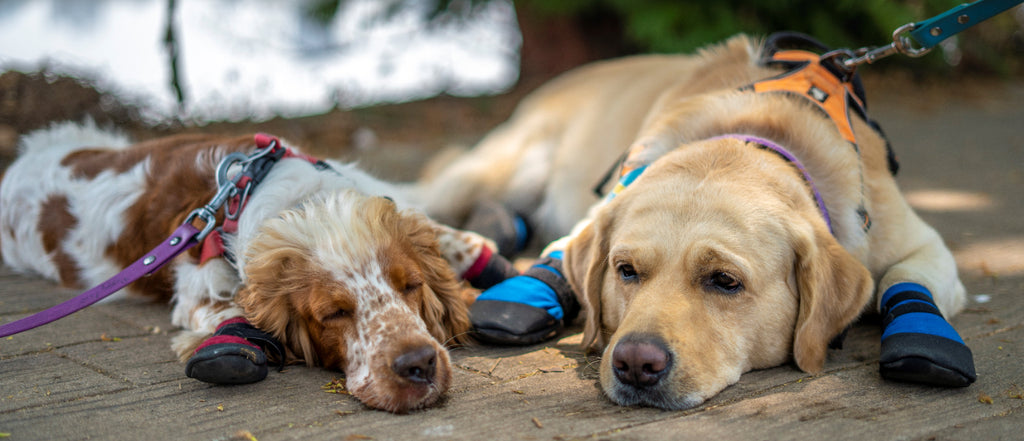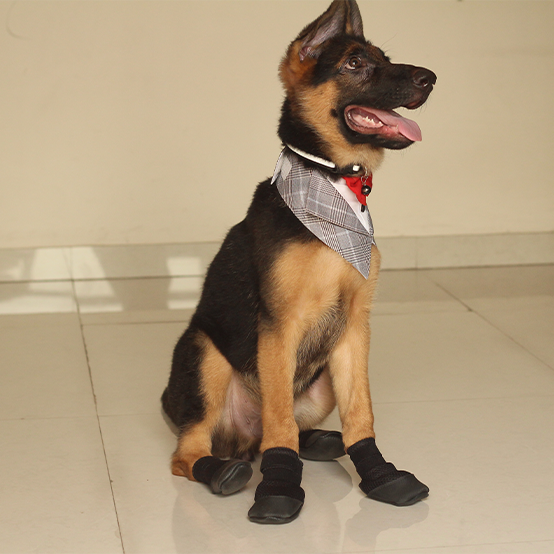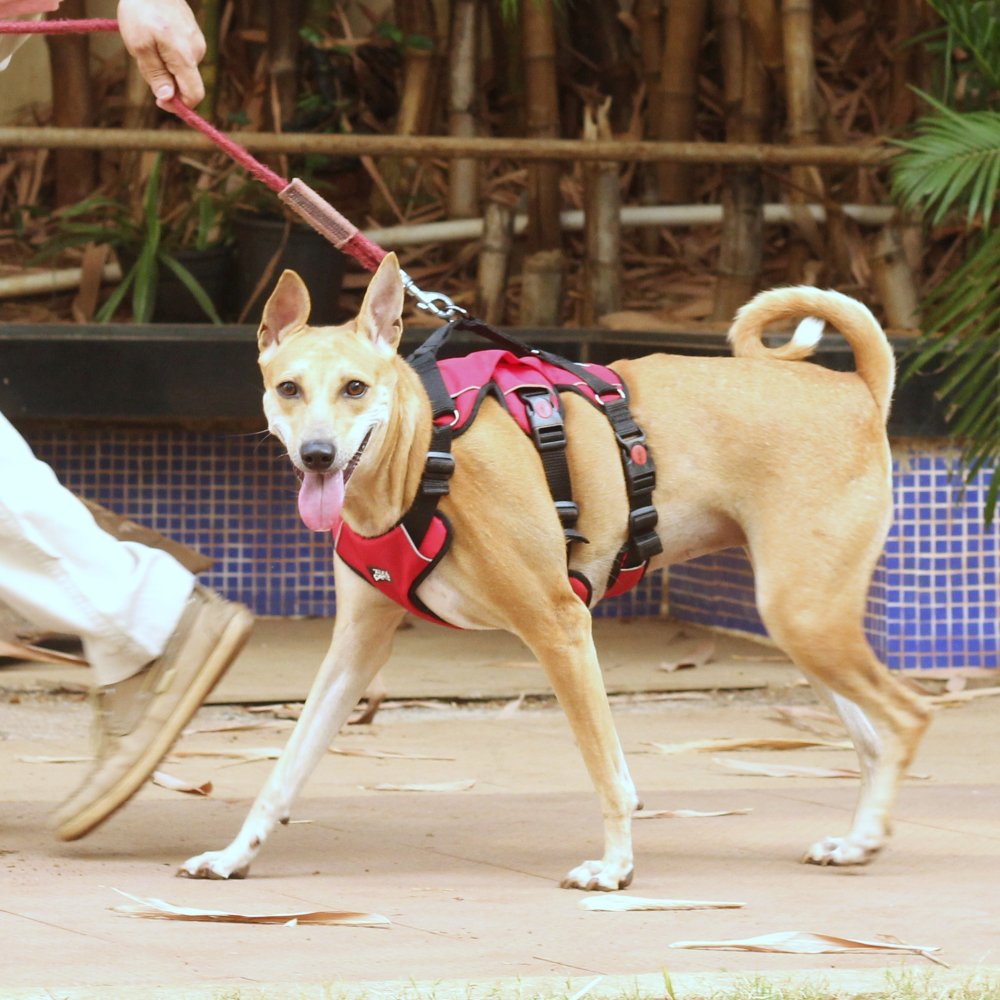Top Dog Physical Therapy Related Questions Answered

Is your furry friend struggling with mobility issues or chronic pain? Unsure about your next steps? Let’s investigate this topic further.
We recently interviewed Ms. Divya on Physical Therapy in Dogs & she had some great insights for us. Let’s know our expert:
Ms. Divya is a specialized physical therapist for animals, certified in Companion Animal Therapy from North Carolina, USA. She helps animals recover from illness or injury and improve their quality of life with minimal discomfort. In the interview, she talks about conditions needing physical therapy for dogs and stresses the significance of dog nutrition and strength training.
Let’s look at the questions and how Ms. Divya put us out of our queries.
1) What is Physical Therapy for dogs, and how does it compare to physiotherapy in humans?
Physical therapy for dogs is similar to physiotherapy for humans. It helps with injuries, deformities, and mobility issues using massage and manual therapy. It aims to avoid medications like painkillers, steroids, or injections. And, it is not limited to rehabilitation. Physical therapy exercises help strengthen a dog's muscles. They can also delay or prevent age-related issues such as arthritis.

2) How many sessions are typically needed for the dog to heal? Are any medicines involved?
The number of physical therapy sessions depends on the injury, age, nutrition, exercise, and how they respond to treatment. We want to limit medication use. If therapy solves most of the problem (80-90%), the rest (10-20%) might need medication. Usually, 2-3 sessions work, but it can change based on the case. Our aim is less medication and more holistic healing with physical therapy.

3) What are the most common issues that parents bring their dog with?
-
Osteoarthritis
-
Hip Dysplasia
-
Spinal issues
-
Back leg weakness
-
Post fracture injury repair
-
Limping
Also, these conditions are not age-specific.
4) Do healthy dogs need Physical Therapy?
Dogs' legs, limbs, and paws are always moving and need regular care. Physical therapy helps them stay healthy and mobile, reducing the risk of conditions like Osteoarthritis or Hip Dysplasia. Regular activity and therapy can prevent these problems.
5) What orthopedic problems do you often see in different dog breeds?
Labradors often face obesity, which can cause arthritis and weaken their hind legs. German Shepherds are highly susceptible to hip problems due to genetic predisposition. Small breeds like Poodles and Shih Tzus commonly experience knee-related conditions like Luxating Patella. Large breeds are more prone to Shoulder and Hip Dysplasia, influenced by their daily activities and exercise levels.

6) What lifestyle adjustments can be made for high-risk breeds to prevent age-related issues?
-
Jumping off the car or sofa or bed can be potentially harmful especially if the dog is predisposed for hip dysplasia or is obese. Use a ramp to avoid injuries and stress.
-
Slipping excessively indoors on marble or tile flooring can also cause injuries and stress on their hip and knee joints. This is especially true for senior dogs. You can either change the flooring, carpet the house or use indoor anti-slip shoes like Zoof grips.
-
In addition to changing the environment to make it safer for high-risk breeds, it's crucial to include regular strength training exercises. These exercises help make their muscles stronger, stabilize their joints, and improve how well they can move around. Easy strength training exercises include walking on sand, going uphill and downhill, using stairs, and swimming.

7) Most parents think walking their dog is the best exercise. Is it enough?
Many dog owners believe that walking their dog is sufficient exercise, but this is not always the case. Just like humans, dogs need varied and vigorous exercise to stay healthy. During walks, dogs typically stay close to us, limiting their exposure to different surfaces and activities. Hence, keeping our pets active with various activities like running, jumping or swimming is extremely important.
There are two types of walks: leisure walks that are routine, and activity-focused walks that involve running, sprinting, jumping, and swimming. For example, letting dogs dig in soft soil can strengthen their muscles and improve paw grip, enhancing traction on indoor surfaces.

8) How important is Nutrition, with respect to building muscles and strength?
“It's the Key.” Nutrition and exercise are 2 elements that keep us healthy and the same goes for our pets. A healthy & balanced diet can make immense improvement and changes in the dog's health. Training dogs with all kinds of foods like daal, rice, vegetables and meat etc. is as important as it is in humans. Muscle growth, muscle strength & muscle quality are factors in diet plans that are to be taken care of. Example: Green Vegetables like spinach and broccoli are great for bone growth.

In conclusion:
This interview highlighted the importance of physical therapy for dogs' overall health and well-being. Just like humans, dogs benefit greatly from physical therapy to improve mobility, manage pain, and recover from injuries. A balanced diet and regular exercise are essential for supporting their physical health and preventing injuries. By raising awareness about the benefits of physical therapy, proper nutrition, and a healthy lifestyle, we can ensure our canine companions lead happy and active lives.
Thank you for joining us on this enlightening exploration into the world of canine physical therapy!







Leave a comment